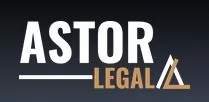The NSW government has unveiled a plan to potentially replace possess prohibited drug charges with fines.
Attorney-General Mark Speakman revealed the proposal to have offenders issued with a $400 fine or a requirement to undergo health treatment instead of facing court.
This is a somewhat similar position to Queensland, where minor drug possession matters are dealt with by way of diversionary schemes.
Recommendations of Inquiry to be Adopted
Mr Speakman suggested that the proposed scheme was part of government's response to the Special Commission Of Inquiry Into The Drug "Ice".
The Inquiry delivered 109 recommendations in 2020 which are yet to be adopted.
The Attorney-General told media outlets that he supported a trial for a "pre-court drug diversion" program. This would allow police a discretion to issue $400 fines to prohibited drug users.
The penalties would be waived if the offender has health treatment that is referred to in the penalty notice.
Response to Criticism
Responding to criticism that the proposal would provide less deterrence to potential drug users, Mr Speakman said, "such a scheme would not be 'soft' on drug use...$400 is more than the average penalty which a drug user will receive in court on a first offence."
He suggested the offender would receive two infringement notices before facing court. This is similar to the current cannabis cautioning scheme.
"This is hardly radical — we already have an infringement notice scheme in place for drugs at music festivals...But without health interventions."
This was one of the recommendations of the inquiry, although a maximum of three infringement notices before it escalates.
Mr Speakman went on to make clear, "severe penalties for supply and trafficking would remain in place".
This has not abated the suggestion that the proposed changes may provide tacit encouragement for recreational drug users.
It has been argued that one of the strongest disincentives for offenders under the current scheme is the prospect of receiving a criminal conviction for a drug offence. This, in addition to the stress and humiliation of appearing at court provided a degree of deterrence to those users.
Yet to be Confirmed
The plan is yet to be decided on by cabinet. This reflects the contentious nature of cabinet discussions on the issue.
Disagreements caused the process to stall in December 2020 which resulted in Mark Speakman saying he was "disappointed" that the government had been slow to implement drug reform after the inquiry.
"I welcome cabinet debate of this and other ways to tackle the scourge of illicit drugs in our communities," the Attorney-General said.
The government has already ruled out decriminalising drugs for personal use or increasing medically supervised injecting rooms.
President of the Law Society of NSW Joanne van der Plaat said it was time for the government to implement a "health-focused approach" to battling drug abuse.
"The current prohibitionist approach is not working. We agree with law enforcement authorities who have said we can't arrest our way out of drug problems," Ms van der Plaat said.
"Any further delay on a meaningful response to the Ice Inquiry risks further criminalisation and demonisation of drug users who need rehabilitation, not incarceration."
Possess Prohibited Drug
Section 10 of the Drug Misuse and Trafficking Act 1985 (NSW) sets out that if you have custody and control of a prohibited drug, you can be guilty of an offence.
You can fight a possess prohibited drug charge in two ways. Firstly, the prosecution must prove beyond reasonable doubt:
- You had possession (ie. physical control or custody) of the alleged drug; and
- You had knowledge or ought to have known that it was there; and
- It was a prohibited drug.
If any of these elements are not made out, then you can be found 'not guilty'.
The following defences to possess prohibited drug apply:
1. Illegal search: Police found the drug after an 'illegal search'. This means that police did the search without having a 'reasonable suspicion' that you were involved in illegal activity.
2. Filipetti defence: It is reasonably possible that someone other than you, who had access to the area it was found, had control and custody of the drugs or placed it there. This can apply if the drug was found in a common shared area of a house or car which is also used by others ( Filipetti (1984) 13 A Crim R 335).
3. Duress: You were forced to have possession of the drug;
4. Necessity: Your actions were necessary in the circumstances
The maximum penalty for possess prohibited drug is 2 years imprisonment and/or a fine of $2,200.
Looking at statistics over the last 5 years, 32% of offenders received no criminal conviction for drug possession. All remaining offenders received criminal convictions and 1% of offenders received a sentence of full-time imprisonment.
Clearly, avoiding a conviction is far from a guarantee for this offence. As such, you should speak to one of our specialist drug lawyers for drug possession charges.
If you receive a criminal conviction for drug possession, it will stay on your record for 10 years from the date the conviction is recorded. If you receive a jail sentence of more than 6 months (including an Intensive Corrections Order), the conviction will stay on your record for the rest of your life.
If you are placed on a Condition Release Order Without Conviction, it will stay on your record for the duration of the bond. Once the bond has concluded, it will no longer be on your criminal record.
If you receive a 'Section 10 dismissal', it will not stay on your record.

